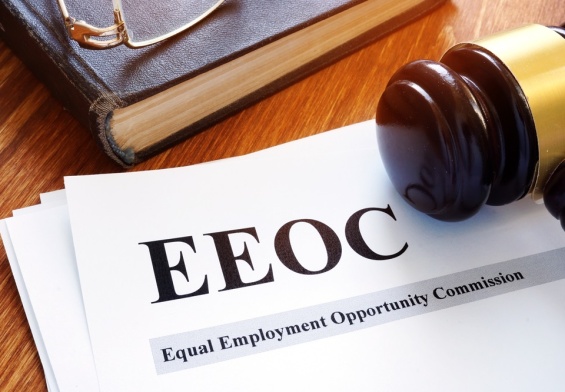The Whistleblower Protection Act (WPA) is an important law that protects federal employees who report their employers for misconduct and illegal activities. Enacted in 1989, it provides certain whistleblower rights that maintain transparency and accountability in the workplace. The Whistleblower Protection Act makes sure employees can safely expose illegal or unethical practices without suffering workplace retaliation. This way, the WPA keeps workplaces and public institutions honest.
This article discusses the history and scope of the WPA, the whistleblower rights it grants, processes for reporting misconduct, as well as legal challenges and recent changes to the Whistleblower Protection Act, demonstrating its significance in keeping employers ethical and honest.
History and Background of the Whistleblower Protection Act
The Whistleblower Protection Act can trace its roots back to the Civil Service Reform Act of 1978, which was the first legislation to address federal employees’ rights to report misconduct without fear of retaliation. This laid the foundation for the Whistleblower Protection Act’s passing in 1989, a pivotal law protects federal whistleblowers from workplace retaliation. The Act was strengthened by amendments in 1994, which made reporting procedures clearer and boosted enforcement methods.
In 2012, the Whistleblower Protection Enhancement Act introduced extra measures, expanding protections and improving complaint handling, making sure to cover disclosures to supervisors and other authorities. These legal advancements shine a light on how important whistleblowers are for promoting transparency and accountability within the federal government.
Scope and Coverage of the Whistleblower Protection Act
The WPA covers current and former federal employees, as well as applicants for federal employment, protecting them from workplace retaliation for reporting misconduct. That being said, the WPA’s protections don’t extend to contractors, military personnel, or employees of certain agencies such as the CIA, FBI, and NSA. This is because the Act’s primary focus is on federal civilian employees while making the specific security concerns and legal foundations that govern specific groups and agencies known. This precise portrayal allows the WPA to effectively target the protection of federal employees while extra measures address excluded groups’ needs.
Key Provisions and Protections
The Whistleblower Protection Act protects reports of illegal or unethical activities within federal agencies. These can include the violations of laws, gross mismanagement, gross financial waste, abuses of authority, and specific, substantial dangers to the health or safety of the public. The Act makes several forms of workplace retaliation against whistleblowers like demotion, dismissal, and discrimination illegal. The U.S. Office of Special Counsel (OSC) has a large role in investigating and prosecuting retaliation cases, while the Merit Systems Protection Board (MSPB) provides a place for whistleblowers to seek corrective actions and appeal adverse actions. These provisions and protections make sure whistleblowers can report misconduct in a safe manner while getting protected and supported every step of the way.
Reporting Procedures and Legal Recourse
Procedures for reporting misconduct typically involve several steps to ensure legal protection and adherence to the law. Whistleblowers making protected disclosures should follow procedures dictated by the Office of the Whistleblower Ombuds. Documenting the disclosure in writing, identifying the right channels within the organization, and ensuring secrecy when it’s necessary make up the these steps.
Additionally, the process for filing complaints of workplace retaliation requires people to understand their rights and responsibilities according to relevant laws and company policies. Talking to legal counsel during the process of reporting misconduct helps navigate these complex legal foundations, ensures adherence to regulations, and protects individuals from potential retaliatory actions.
Challenges and Limitations of the WPA
The Whistleblower Protection Act faces challenges and limitations that impact its effectiveness across different sectors and employee categories from time to time. One issue that’s often challenged is the gaps in coverage, leaving certain sectors or types of employees unprotected under the current provisions so they’re vulnerable to retaliation. The Whistleblower Protection Act’s enforcement and protection consistency are also challenged often since applications and interpretations of WPA provisions can vary, and this variance leads to inconsistent outcomes and protections for whistleblowers. Many cases have suffered from common pitfalls, such as insufficient evidence or procedural missteps. These pitfalls can hurt the credibility of whistleblower claims, even if the concerns are legitimate. Fortunately, these challenges can be addressed with continuous legislative review and organizational diligence that makes sure all whistleblowers are protected.
Recent Developments and Enhancements
The Whistleblower Protection Enhancement Act of 2012 shines a light on several recent developments in whistleblower protections and signifies dramatic progress in the fight to protect whistleblowers’ rights. This law introduced stronger measures for strengthening protections and refining reporting methods. These measures include provisions that broaden coverage across federal agencies and provide clearer guidelines on preventing workplace retaliation.
Legislative changes like this have had a dramatic impact that creates a more supportive environment for whistleblowers to make their concerns about misconduct or illegal activities known. Organizations like the Office of the Whistleblower Ombuds spread important information and fight for the rights of whistleblowers. Services like this translate recent enhancements into real benefits for those willing to disclose wrongdoing.
The Whistleblower Protection Act of Today
The Whistleblower Protection Act acts as a cornerstone in keeping federal employees who expose misconduct or illegal activities within their organizations safe. Since its enaction, the WPA has granted significant protections for whistleblowers, ensuring they can use their voices without being subject to workplace retaliation.
However, there is still an ongoing need for strong whistleblower protections to maintain accountability and transparency across sectors. Employees should familiarize themselves with their rights under the WPA and seek legal advice promptly in accordance with these rights when facing workplace retaliation or if they’re simply unsure about reporting processes. By doing so, employees promote a culture where ethical concerns are addressed promptly and effectively.




